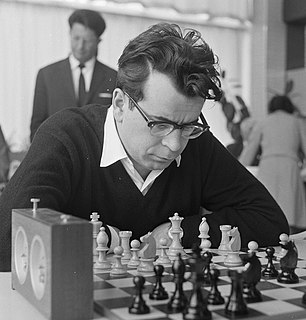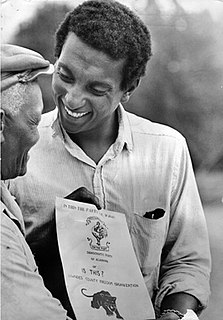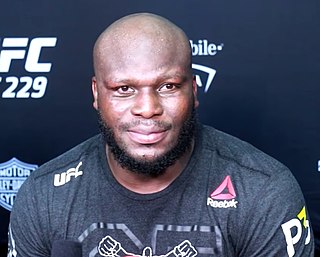A Quote by Greg Jackson
Your job, with all that mental training and suffering, is just to push your line of breaking so far your opponent can't find it.
Related Quotes
When you go out on the court whether it be for the championship or just a scrimmage, have confidence that your abilities and what you've learned in your drills are better than your opponent's. This does not mean you should disregard your opponent. Before taking the court for any game, you should do a lot of thinking about what you have to do to beat your opponent and what he must or can do to beat you.
Business is cold and harsh. Business doesn't consider your personal needs or the ends of your family. Business doesn't allow you to keep to your job after you slaved at a place for 20+ years. Rather than increase your benefits, business cuts you out of the job situation so that you're job-hunting, off to find a far less prestigious position.
Find your own Calcutta. Find the sick, the suffering and the lonely right there where you are in your own homes and in your own families, in your workplaces and in your schools. You can find Calcutta all over the world, if you have the eyes to see. Everywhere, wherever you go, you find people who are unwanted, unloved, uncared for, just rejected by society completely forgotten, completely left alone.
You will never ever be successful until you turn your pain into greatness, until you allow your pain to push you from where you are to push you to where you need to be. Stop running from your pain and embrace your pain. Your pain is going to be a part of your prize, a part of your product. I challenge you to push yourself.
I think the mental preparation isn't something that you can work on in one large sum. It has to be a collective collaboration of doing little things for your mental state constantly throughout the prep and managing your life outside the Octagon, managing your life in transit to the Octagon, managing your life once you get to training.






































